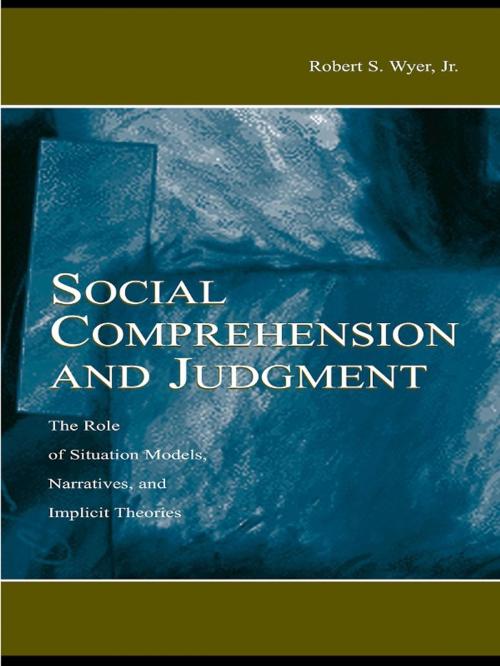Social Comprehension and Judgment
The Role of Situation Models, Narratives, and Implicit Theories
Nonfiction, Health & Well Being, Psychology, Social Psychology| Author: | Robert S. Wyer, Jr. | ISBN: | 9781135636173 |
| Publisher: | Taylor and Francis | Publication: | September 12, 2003 |
| Imprint: | Psychology Press | Language: | English |
| Author: | Robert S. Wyer, Jr. |
| ISBN: | 9781135636173 |
| Publisher: | Taylor and Francis |
| Publication: | September 12, 2003 |
| Imprint: | Psychology Press |
| Language: | English |
Written by one of the foremost authorities in social cognition, Social Comprehension and Judgment examines how people process information encountered in their everyday lives. In the book, Dr. Wyer proposes a new theory about the way in which information acquired in everyday life is comprehended and represented in memory, and how it is later used as a basis for judgments and decisions. A major emphasis throughout is on the construction and use of narrative representations of knowledge and the way that visual images influence the comprehension of these narratives and the judgments based on them. The role of affective reactions in this cognitive activity is also discussed.
Social Comprehension and Judgment is divided into three sections. Part I provides a conceptual overview by outlining the general theoretical framework focusing on assumptions about the storage and retrieval of information and reviews recent research on the impact of knowledge accessibility on judgments and decisions. Part II deals with the comprehension of information, and examines the role of these processes in impression formation, persuasion, and responses to humor. Part III describes the inferences that are based on information conveyed in social situations.
This book is ideal for advanced students and researchers interested in the areas of social cognition or social information processing.
Written by one of the foremost authorities in social cognition, Social Comprehension and Judgment examines how people process information encountered in their everyday lives. In the book, Dr. Wyer proposes a new theory about the way in which information acquired in everyday life is comprehended and represented in memory, and how it is later used as a basis for judgments and decisions. A major emphasis throughout is on the construction and use of narrative representations of knowledge and the way that visual images influence the comprehension of these narratives and the judgments based on them. The role of affective reactions in this cognitive activity is also discussed.
Social Comprehension and Judgment is divided into three sections. Part I provides a conceptual overview by outlining the general theoretical framework focusing on assumptions about the storage and retrieval of information and reviews recent research on the impact of knowledge accessibility on judgments and decisions. Part II deals with the comprehension of information, and examines the role of these processes in impression formation, persuasion, and responses to humor. Part III describes the inferences that are based on information conveyed in social situations.
This book is ideal for advanced students and researchers interested in the areas of social cognition or social information processing.















